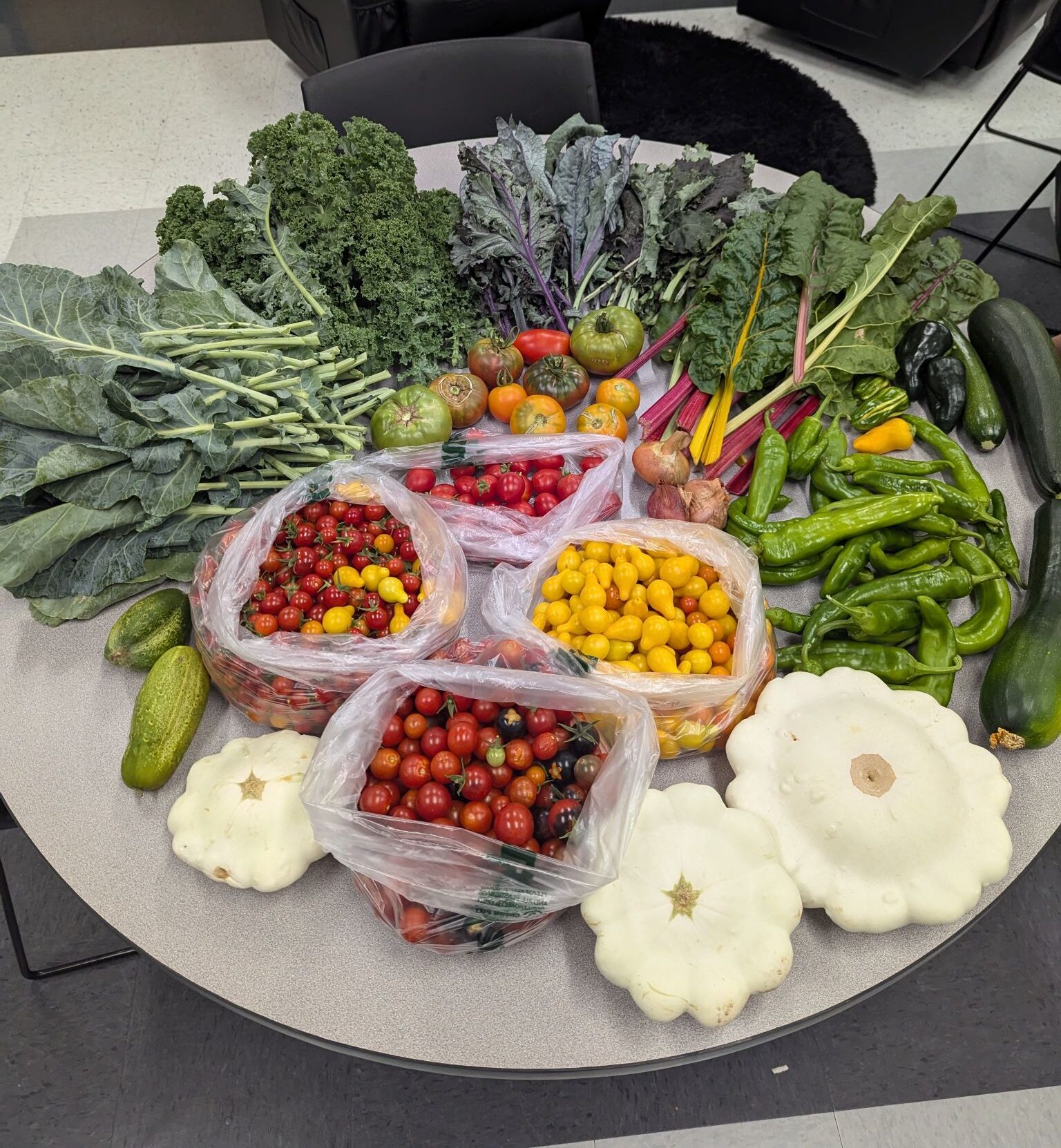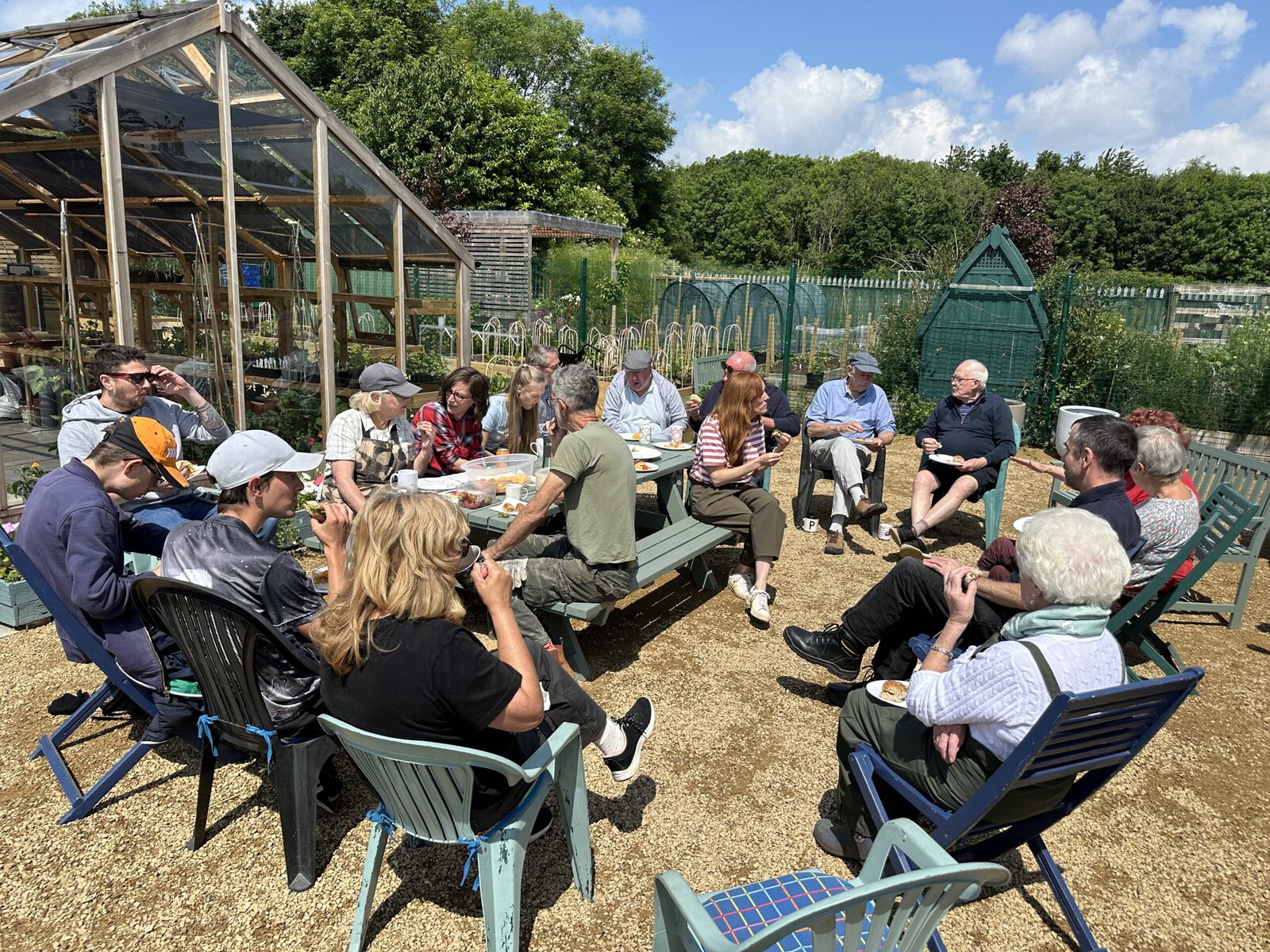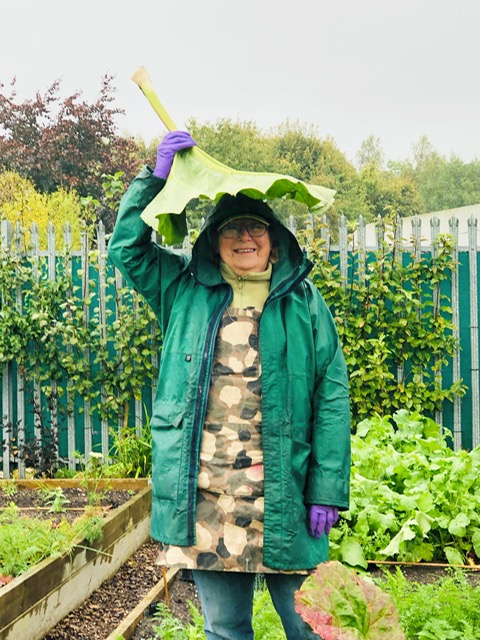Truth be told, I am one of those gardeners who, on a cold January day, is out in the garden making sure all my plants are snug and warm, while I am freezing to the bone. As strange as it may sound, it feels good to stand under the bare branches of an apple tree, in a bitter wind, and prune. To me, gardening is much more than just a summer hobby: It’s a workout for my body, and when life feels chaotic, it’s a balm for my mind, offering a sense of peace and balance.
As it turns out, gardening really is good for you — and science is beginning to prove it. In a first-of-its-kind study on the physical and mental health effects of community gardening, Dr. Jill Litt, a professor of environmental health at the University of Colorado at Boulder, set out to prove that the benefits of gardening go beyond a tasty tomato or beautiful rose bush.
Working with Denver Urban Gardens (DUG), a nonprofit organization with a network of 200 community gardens across six Colorado counties, Litt recruited 291 non-gardening adults for the study. Half were from low-income households. One half gardened, while the other half, who didn’t garden, served as the control group.
Each member of the gardening group received a community garden plot from DUG, seeds, seedlings and an introductory course on gardening. Growing produce from seed is an accomplishment for any gardener. Litt’s study measured exactly how healthy that accomplishment is.
The study, which was published in 2023, found that daily dietary fiber intake for the gardening group was 1.4 grams higher than the control group. This may not sound like a lot, but dietary fiber, found in plant foods such as legumes, fruits and vegetables, is linked, for instance, to a lower risk of cancer. And the health benefits go beyond the nourishing food that gardens provide.
Weighed down by negative news?
Our smart, bright, weekly newsletter is the uplift you’ve been looking for.
There’s a lot of physical work involved in growing nutritious produce including watering, pruning, weeding and digging. All this physical exercise is one of gardening’s superpowers, as Stephanie Rose, a Vancouver gardener, can attest.
Rose (who was not part of Litt’s study) first got sick when she returned home from vacation in July 2006. “It started,” she recalls, “with a headache and a little bit of a cold. The cold went away, but I had extreme fatigue.” This lasted not for a few weeks but several years. It was so debilitating that Rose found herself bedridden the majority of the time. It was only during the third spring of her illness that she felt well enough to venture outside and start to garden.

“I couldn’t do much,” she says. “I sat outside on my front doorstep, dug in the soil a little bit and planted a few seeds.” Over time she built up her strength, and five minutes a week digging in the dirt morphed into five hours a day cultivating a garden. She’s now a renowned master gardener and author of 12 gardening books.
“Gardening built up my physical strength, stamina, energy and there’s a feedback loop,” says Rose.
Katie McGillivray, a horticultural therapist with Ottawa-based Root in Nature, confirms that these are among the benefits of the practice. “Gardening naturally encourages physical activity, from gentle movements like walking, watering and weeding, to more vigorous tasks like digging, raking or hoeing,” she says.
The US Centers for Disease Control and Prevention (CDC) recommends a weekly goal of 150 minutes of moderate-intense activity or 75 minutes of vigorous-intense activity. Only 22.5 percent of adults, in 2022, met guidelines for both muscle-strengthening and aerobic physical activity. McGillivray and the CDC agree that chores involved with gardening burn calories and improve dexterity, muscle mass and bone density.
Physical activity also promotes the production of the brain’s feel-good neurotransmitters, such as dopamine and endorphins, which help regulate mood and feelings of pleasure. Part of what encouraged Rose to keep gardening and regaining her sense of well-being was the reward of seeing things she had planted grow. “It was a burst of joy, serotonin, dopamine, all the happy chemicals that keep you going and wanting to do more,” she says.

Between November 2016 and April 2017, a questionnaire was electronically distributed in the United Kingdom through organizations such as Britain’s Royal Horticultural Society (RHS) and the BBC. The survey, aimed at both gardeners and non-gardeners, asked questions such as how often an individual gardened and how satisfied they were with their front garden. Garnering responses from 5,766 gardeners and 249 non-gardeners, the findings revealed significant differences in stress levels based on gardening frequency. Notably, those who gardened daily experienced a 4.2 percent reduction in relative stress levels compared to those who didn’t garden. This underscores the mental health benefits many associate with gardening.
“When I’m having a bad day, hanging out in the garden pulling weeds or socializing always makes me feel better,” says Sue Mathison, coordinator of Samuels Community Garden in Denver, part of DUG’s network.

Gardening groups and community gardens are also places of community and social interaction. And nowhere is this more true than at the Wonky Garden in Widnes, a town in the English borough of Halton, Cheshire. Here, connection is at the heart of everything.
“There is a beautiful link between gardening, social interactions and the development of friendships,” says Angela Hayler, the garden’s founder. If Hayler’s cancer specialist nurse had not persuaded her to go to a yoga class for cancer patients, she would not have met the friends who helped her build the garden, who in turn encouraged more friends to volunteer until a friendship army of 30 was created.
In 2023, the US Surgeon General issued an advisory on loneliness and social isolation. According to the advisory, more than half of all Americans report feelings of loneliness on a daily basis. Loneliness and feeling socially disconnected have, according to research, a similar health impact to smoking 15 cigarettes a day. According to the CDC, finding places of social connection can increase an individual’s mental and physical health. In short, people with stronger social bonds are more likely to live healthier lives and to feel supported during good and bad times.
Social connection may not be what initially draws people to community gardening groups or garden clubs, but many who garden say there is something universal in gardening that transcends barriers.
“At the Wonky Garden, everyone has the same common connection, irrespective of backgrounds or abilities, and that is simply being there to take a breather from everyday life and enjoy Mother Nature. It doesn’t matter if you are deadheading [removing dead flower heads] with a bank manager or digging with a teacher, a cook or a retired policeman,” Hayler says.
When Rose joined a community garden club as part of her healing journey, she gardened next to a woman who spoke only Cantonese. Rose only knew English. Through gestures and observations, they forged a friendship. Likewise, Litt says one of the key takeaways from the community gardening study was the relationships formed at the community garden and how these in turn helped the gardeners feel more bonded to the community at large.
And of course, gardening means time in the sun, which has its benefits too. Vitamin D (the sunshine vitamin) is absorbed into the body when we are outside exposed to ultraviolet radiation. Low vitamin D levels are associated with anxiety and depression.
When it comes to reaping the rewards of gardening, it doesn’t even matter if the pumpkin seeds you plant or the tomatoes you nurture produce fruit. “In therapeutic horticulture, we emphasize focusing on the process more than the result,” says McGillivray. “Even if your tomato harvest is not as bountiful as you had hoped, there is so much therapeutic value in the process of planting and caring for these plants regardless.”
The post The Benefits of Gardening Just Keep Sprouting appeared first on Reasons to be Cheerful.




